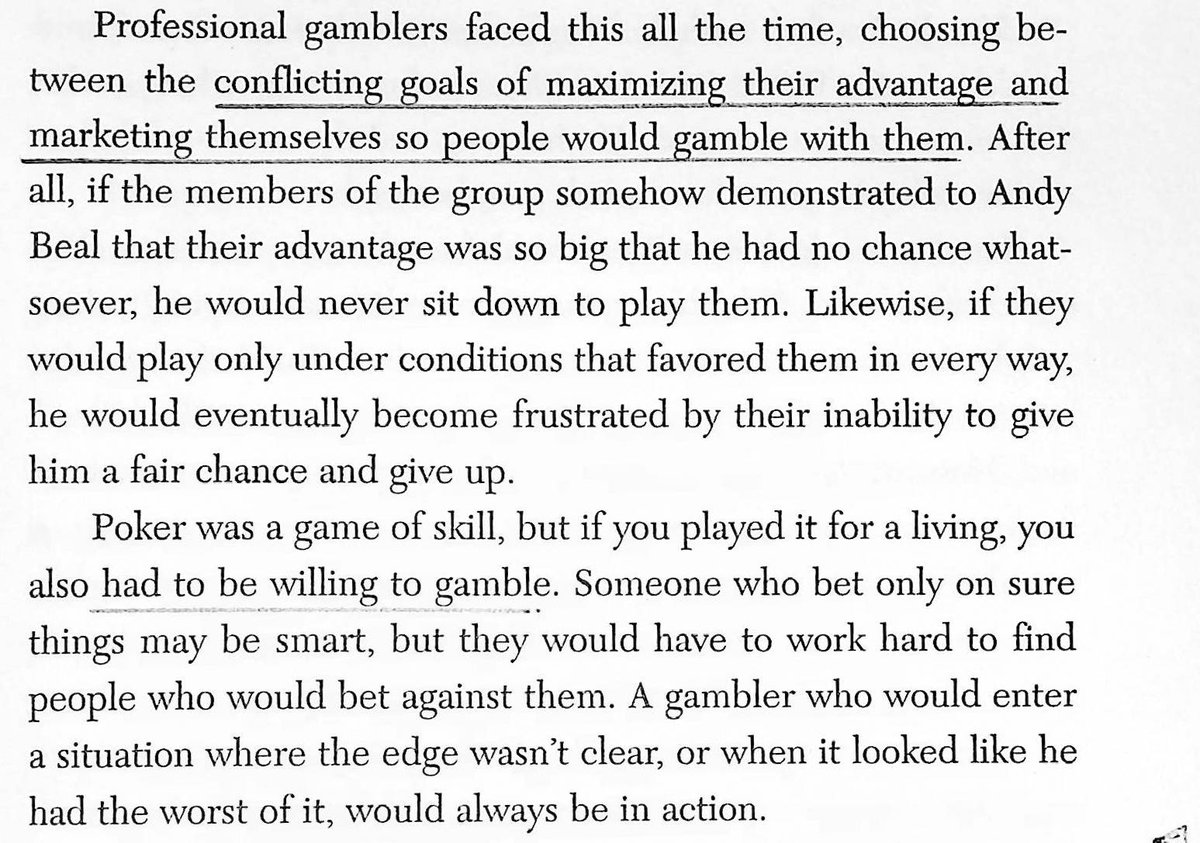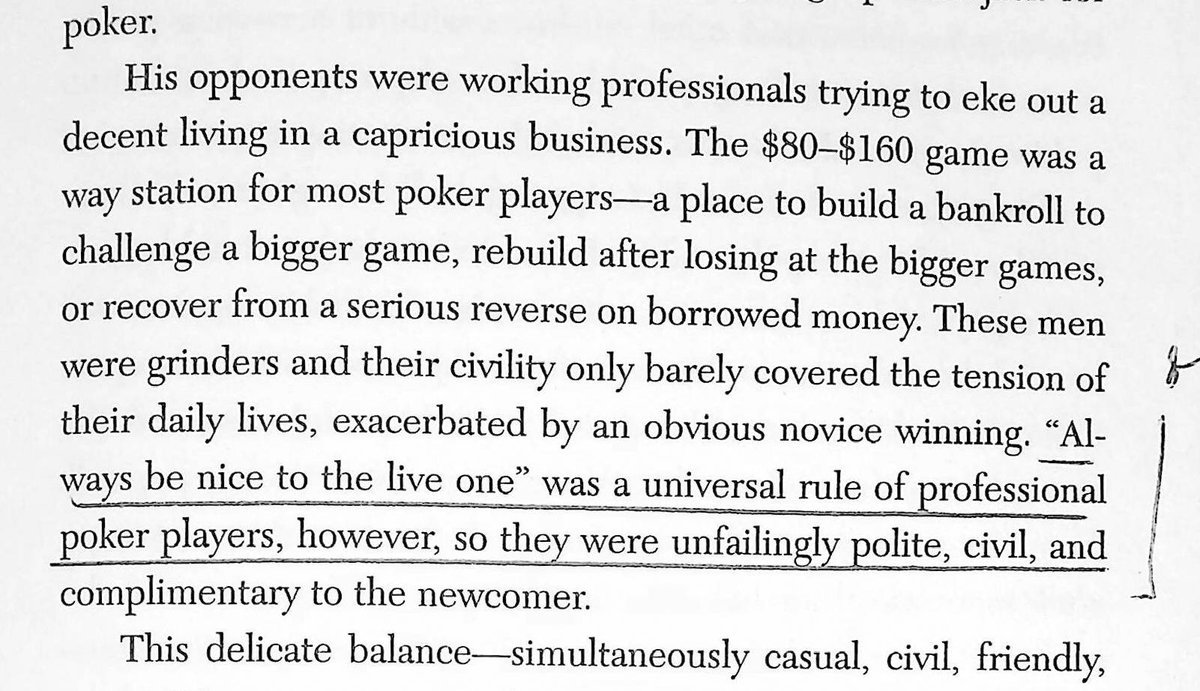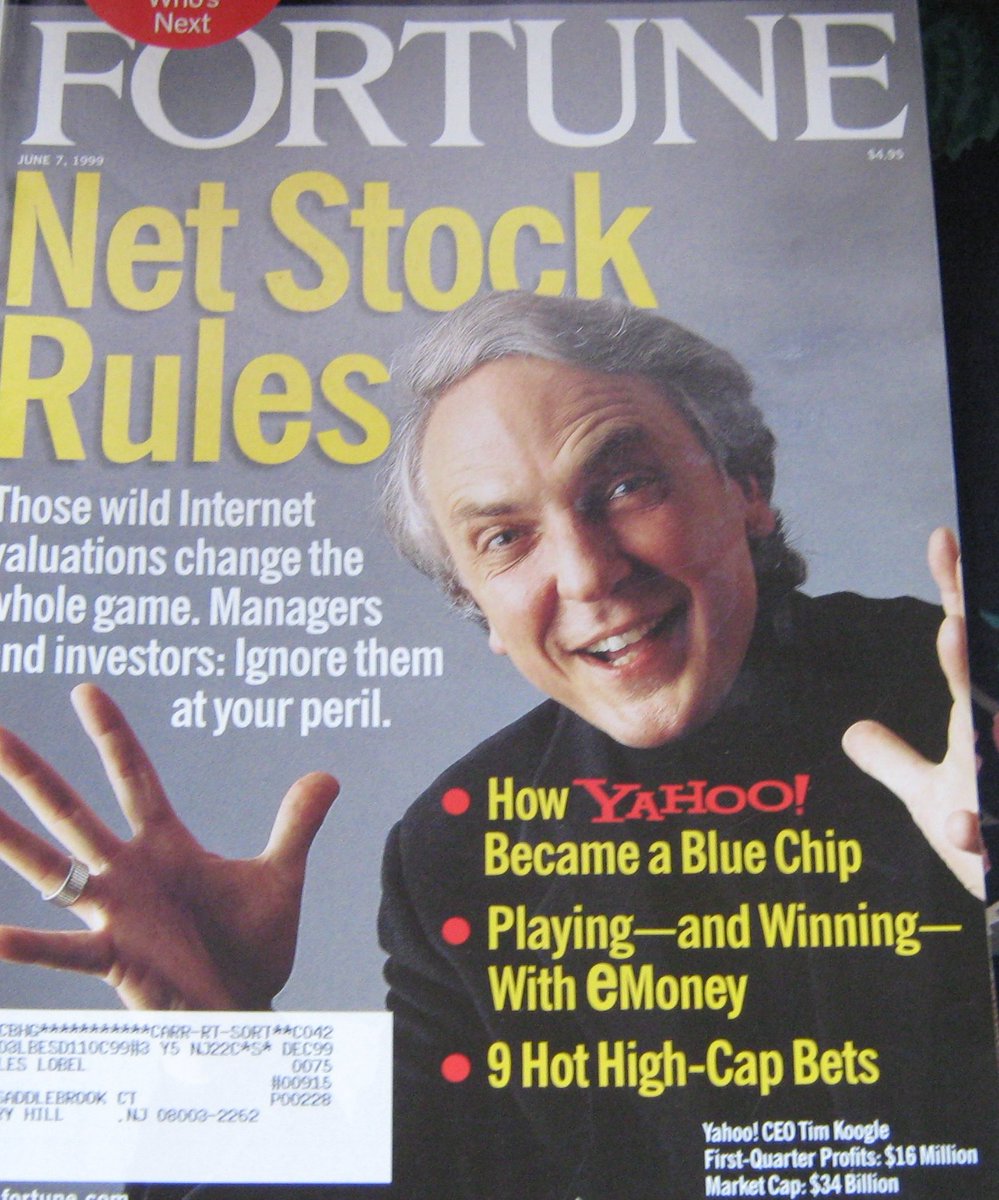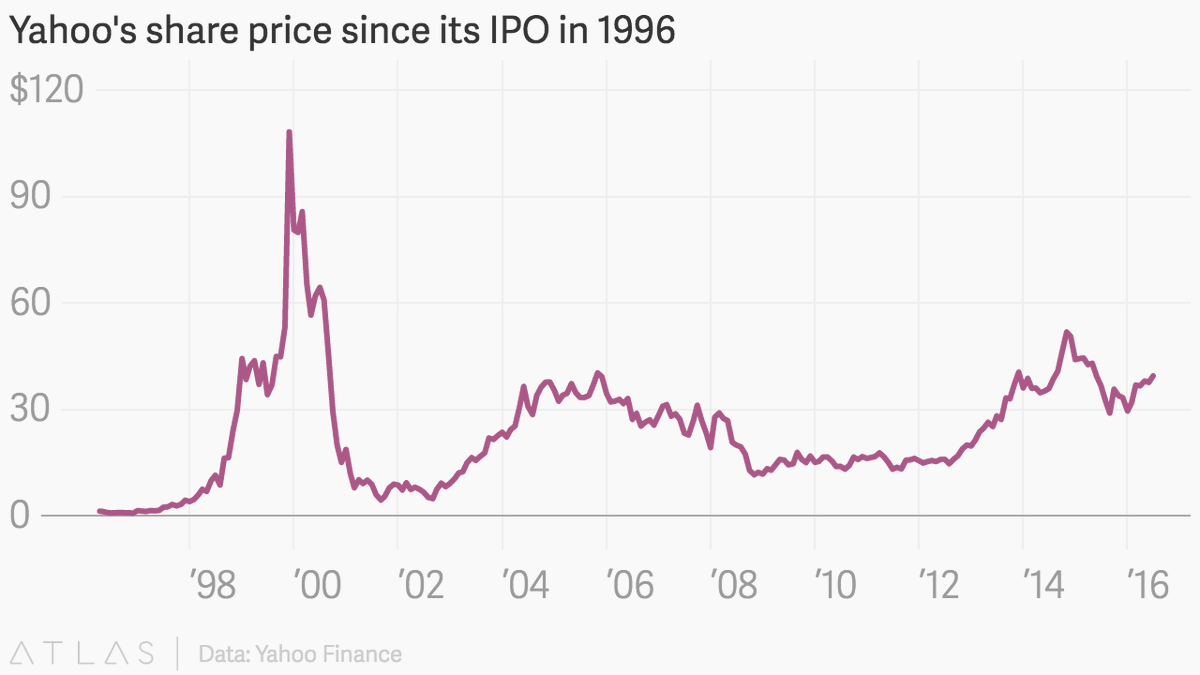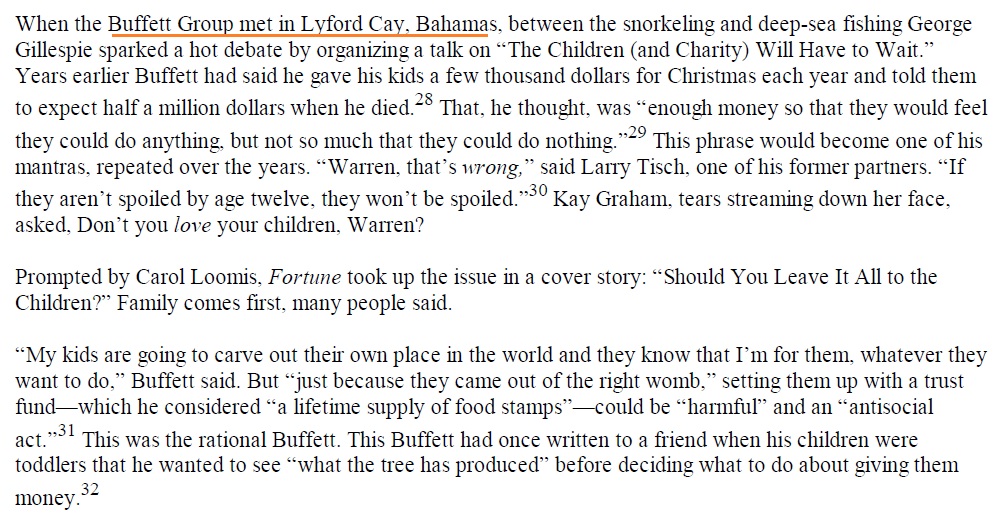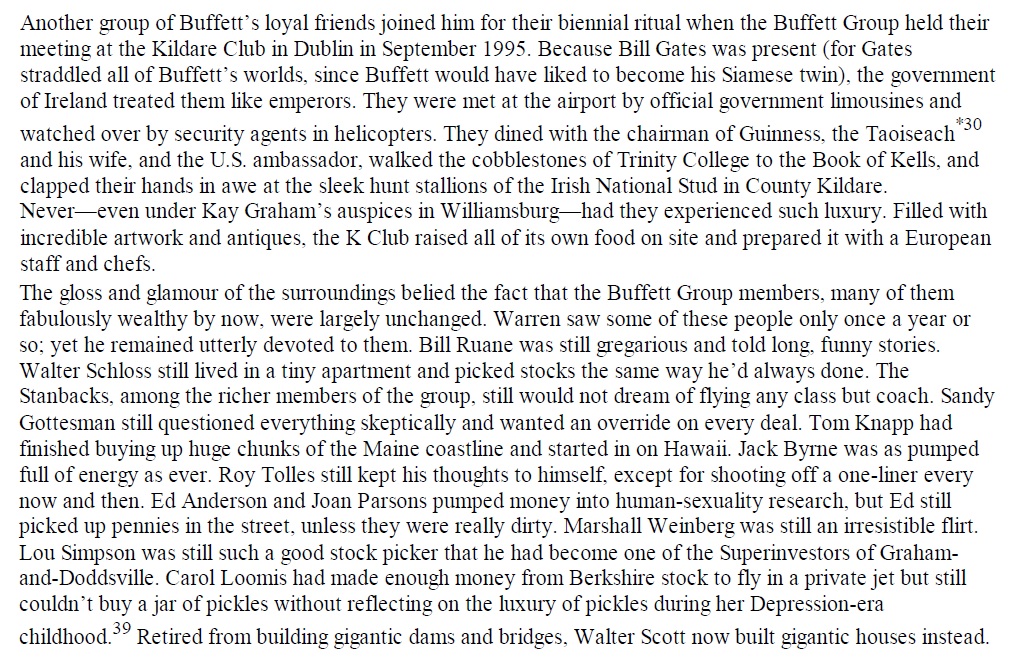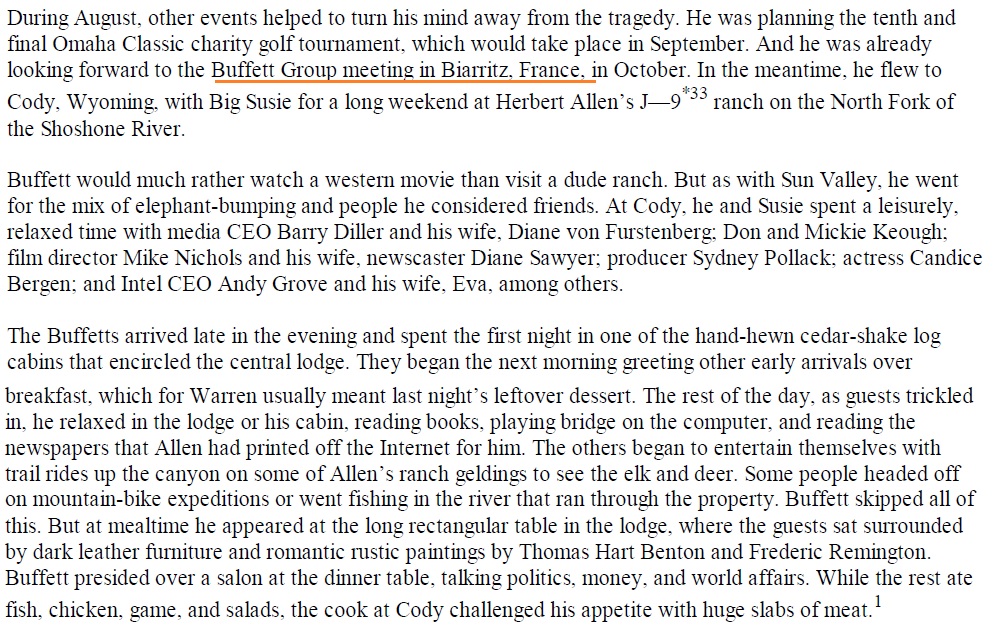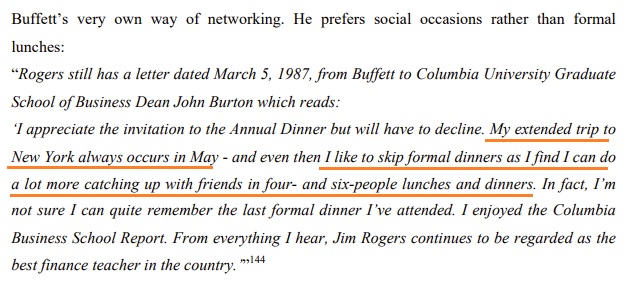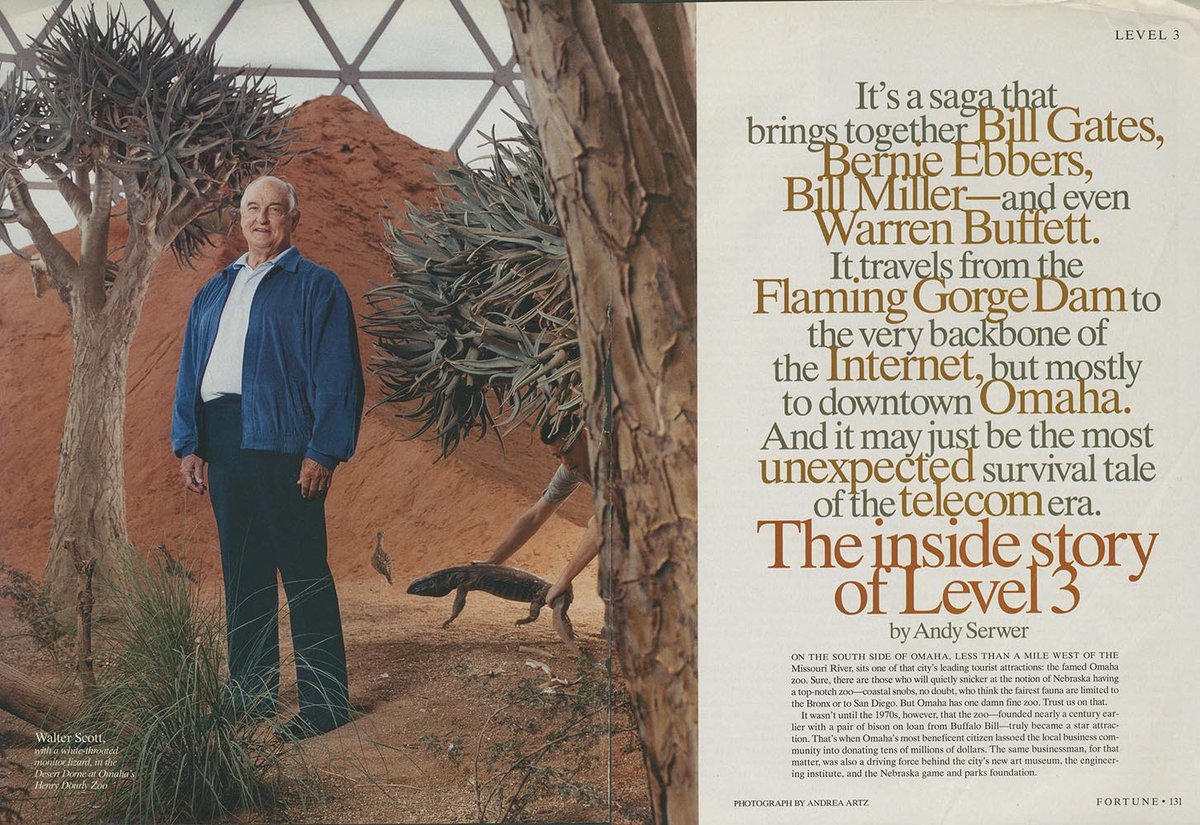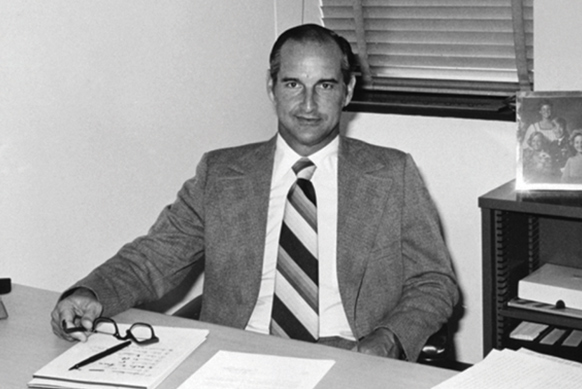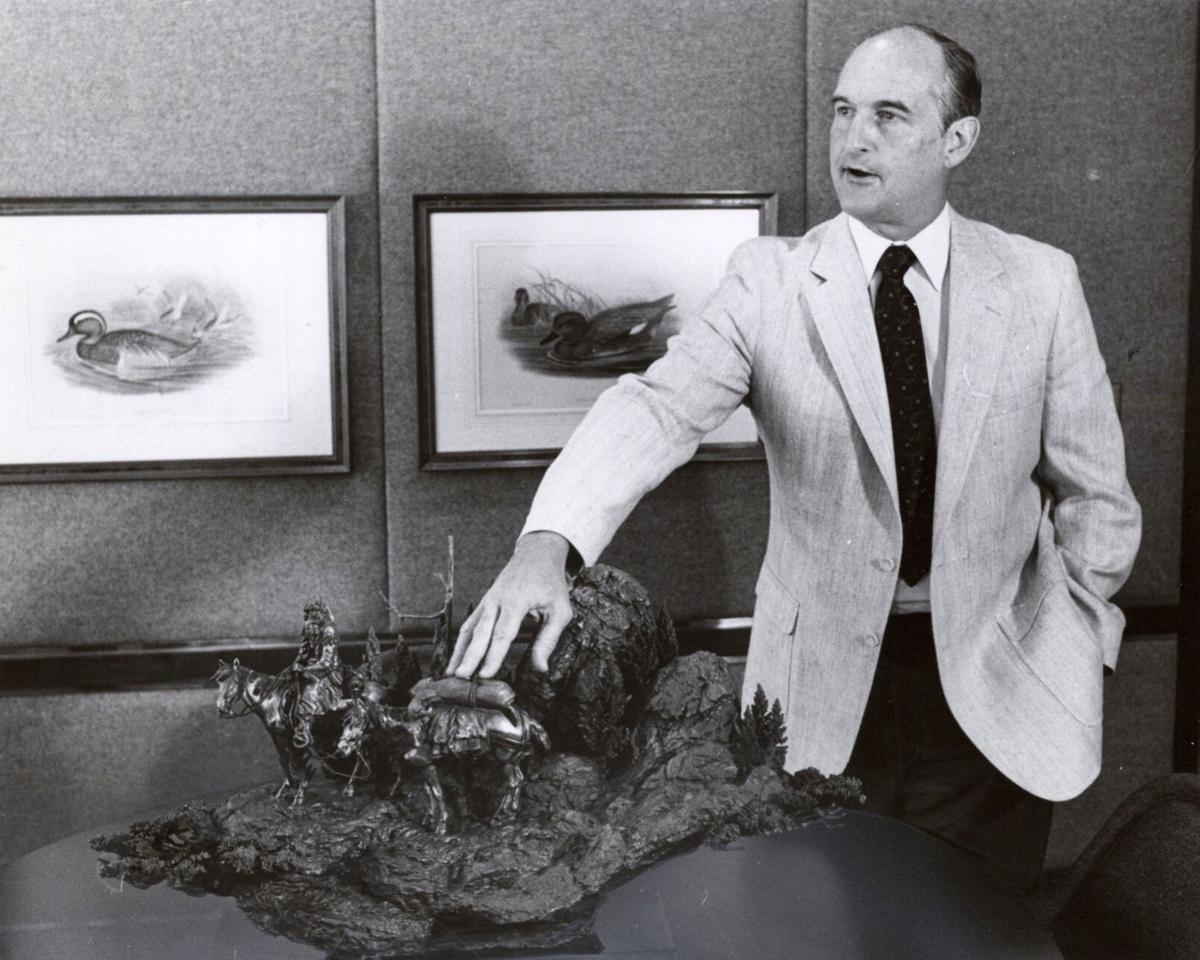
A few notes on professional poker players and parallels I see with investors from the book The Professor, the Banker, and the Suicide King (about a series of high stakes poker games between Vegas pros and renegade real estate investor/banker Andy Beal) 
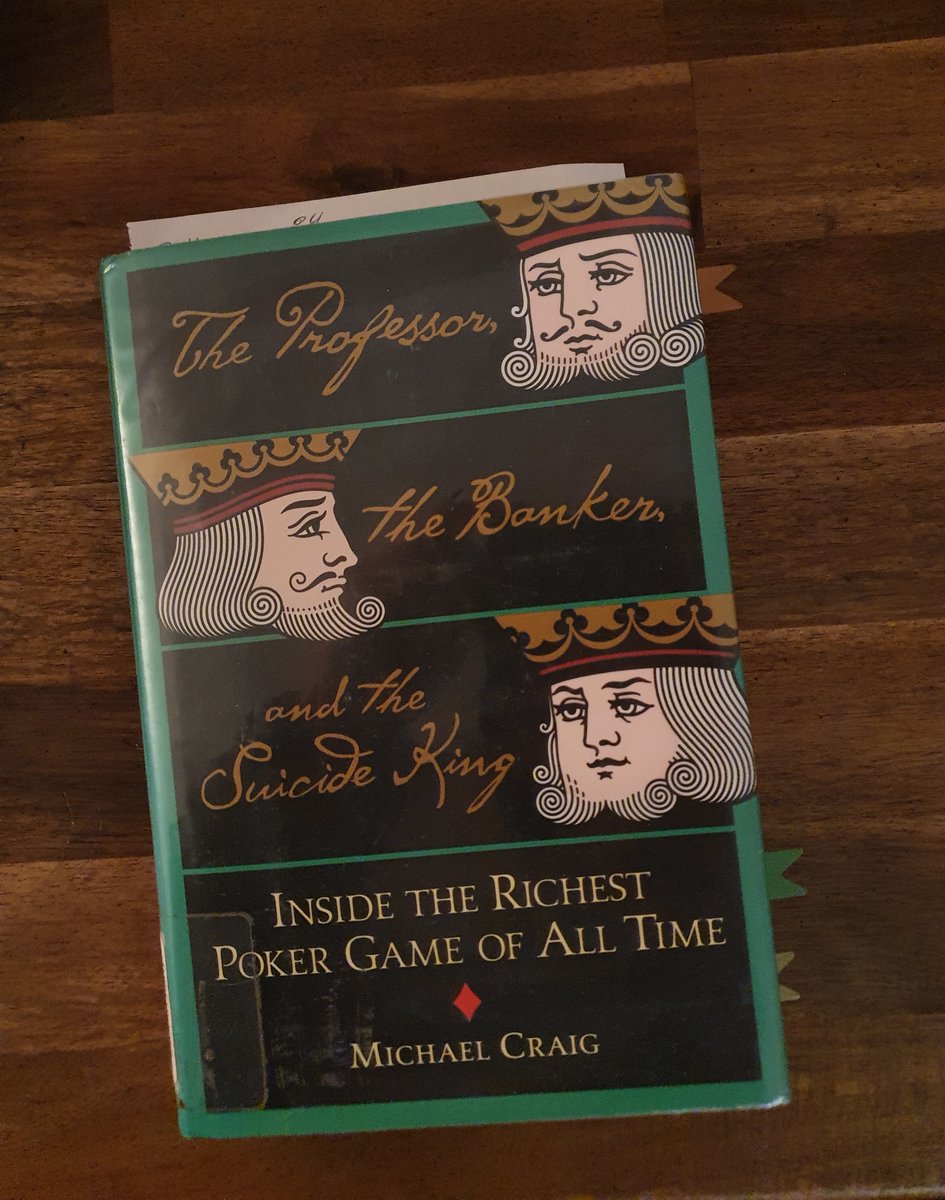
"The best players walk a tightrope between their business sense and their passion. As professionals, they seek out the most profitable opportunities. As gamblers, they want the risk and excitement of having something important on the line." 
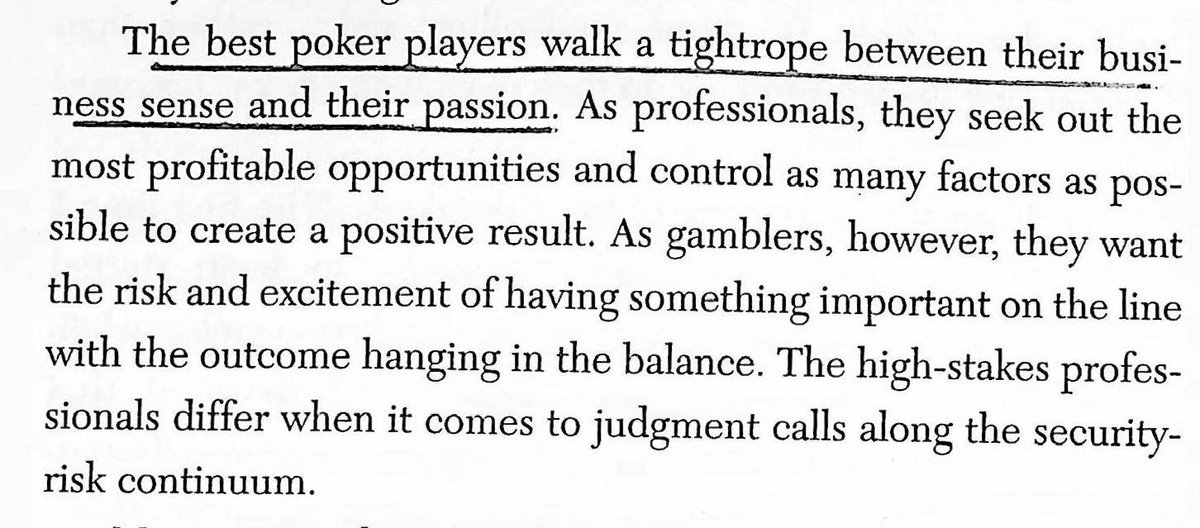
"Elite players are drawn from a pool of gamblers, not problem solvers or people readers. They start off losing like everybody else."
Ingredients: competitive drive, risk tolerance - and "a lot of losing." It's ok to pay your dues, that's how you learn.
Ingredients: competitive drive, risk tolerance - and "a lot of losing." It's ok to pay your dues, that's how you learn.
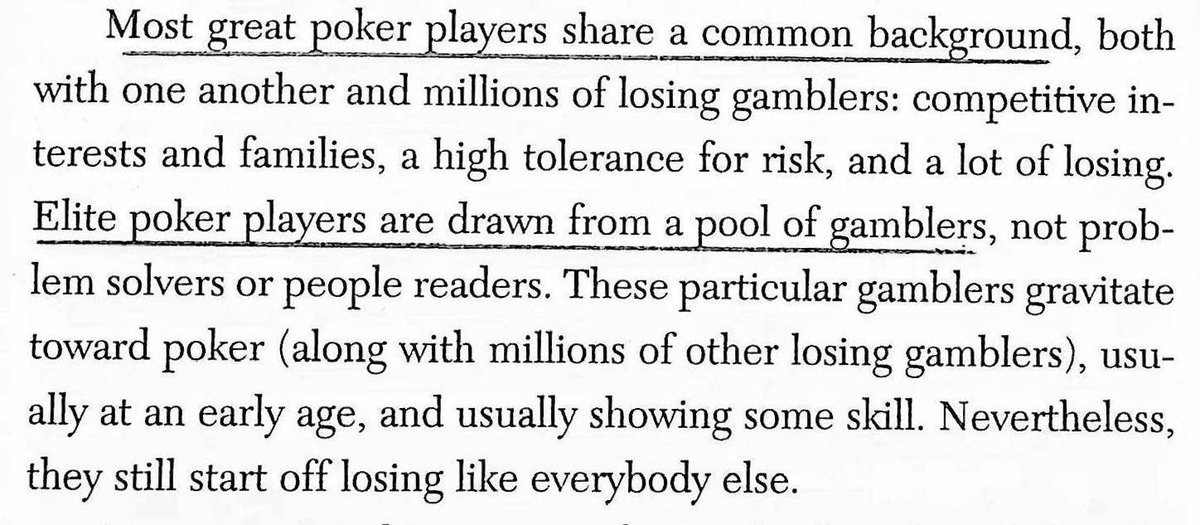
"The pro is developing a recognizable edge. From that point on, she has more in common with the casino than the other bettors."
"Professionals merely have to allow enough trials to even out the role of luck." (and stay in the game long enough)
"Professionals merely have to allow enough trials to even out the role of luck." (and stay in the game long enough)
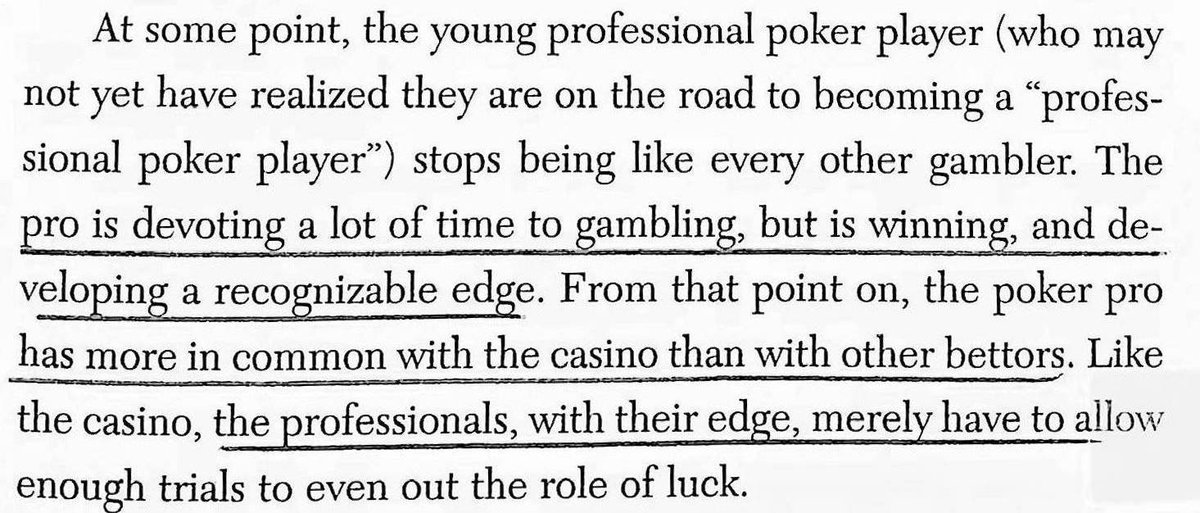
"There are a lot of poker players who aren't gamblers. They find a level where they can win and they make their living. But if you don't have that need for action in you, you don't push yourself to move higher up. It takes a certain amount of gambling mentality to keep pushing." 
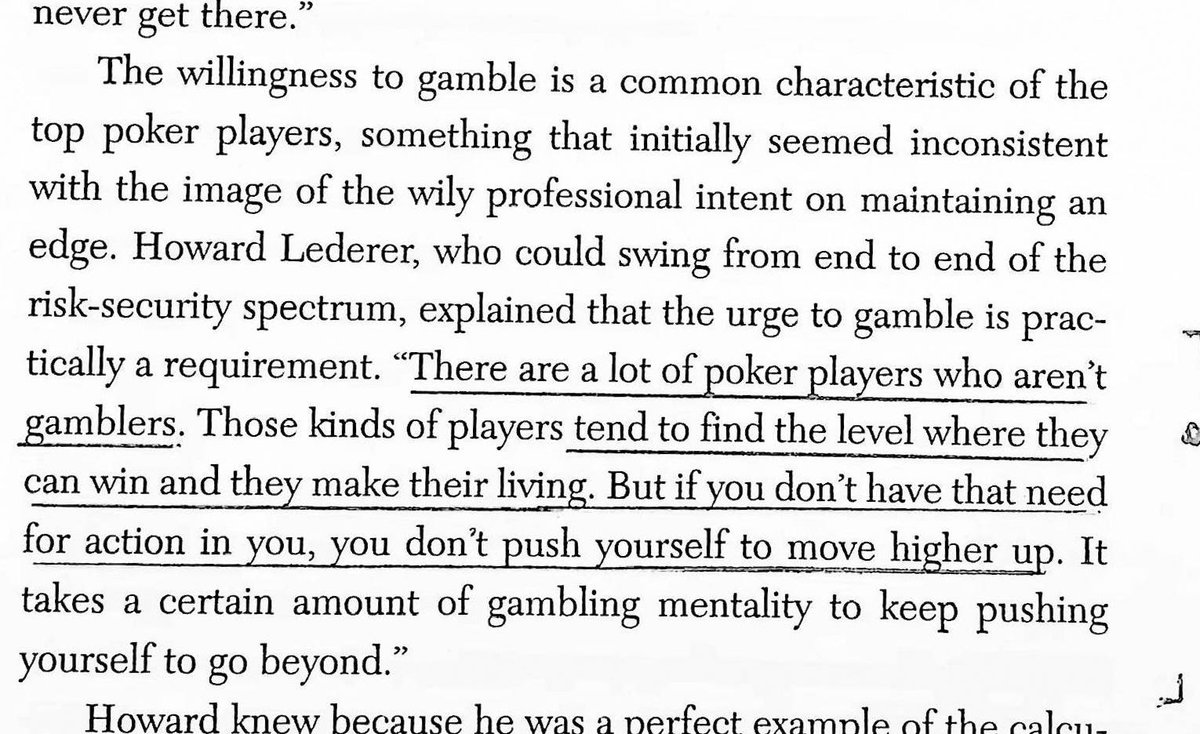
Keynes: "The game of professional investment is intolerably boring to anyone who is entirely exempt from the gambling instinct; whilst he who has it must pay to his propensity the appropriate toll."
"The true professionals were those whose attitude might sometimes cost them, but who had the skills to handle the bad gambles while cashing in on all the favorable situations their "let's gamble" style brought their way." 
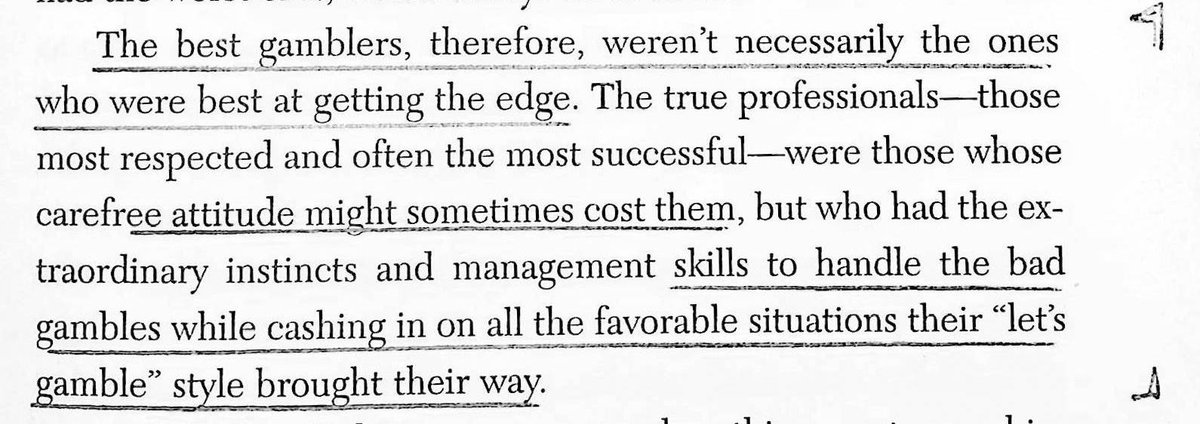
"Confidence bordering on arrogance. Players would crack under the pressure unless they truly believed they were better."
Munger: "In my whole life, nobody has ever accused me of being humble. Realistic is probably a better word. We understand our limitations better than others."
Munger: "In my whole life, nobody has ever accused me of being humble. Realistic is probably a better word. We understand our limitations better than others."
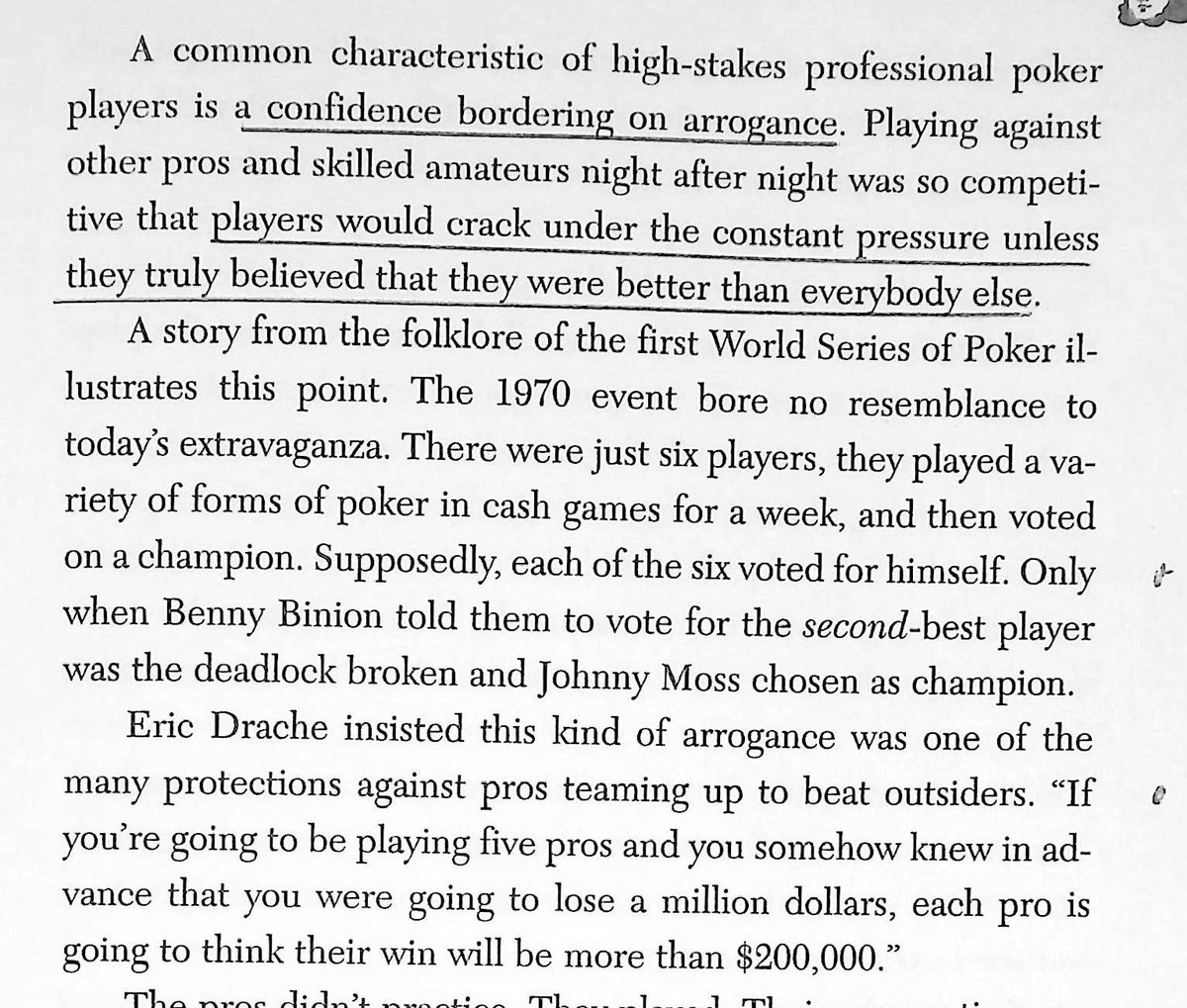
• • •
Missing some Tweet in this thread? You can try to
force a refresh
